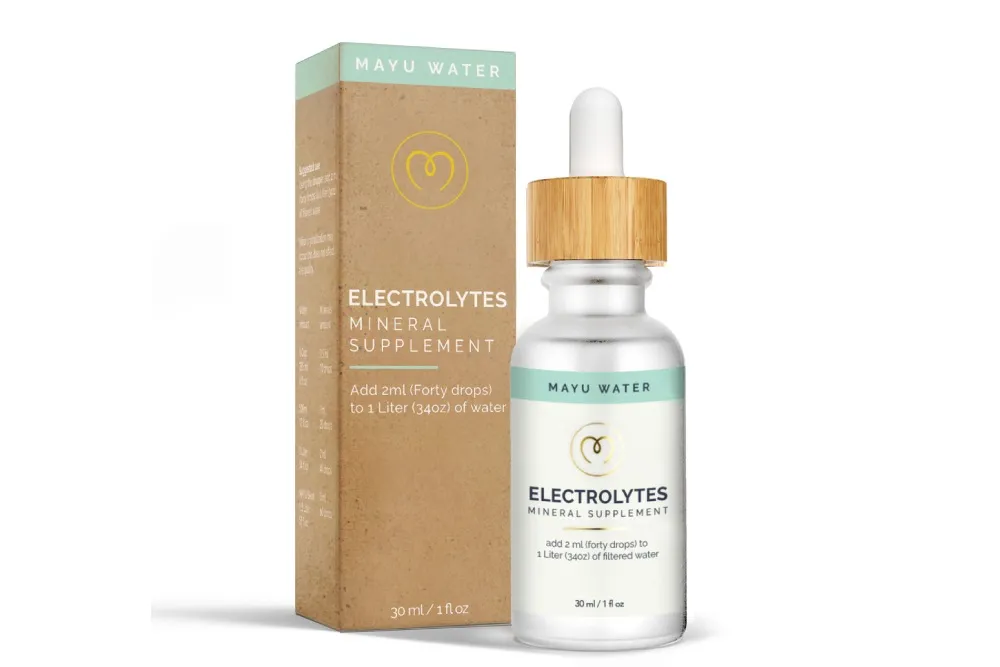10 Essential Vitamins And Minerals For Boosting Cognitive Functions
Forget magic potions; fuel your focus. Dive deep into the science behind essential vitamins and minerals that can supercharge your memory, sharpen your thinking, and keep your brain healthy for years to come.
Updated May 31, 2024

Although the brain accounts for only 2% of our body weight, it uses about 20% of our daily energy intake—that means that during a typical day, we use 320 calories to think. This remarkable statistic emphasizes the crucial connection between nutrition and cognitive function.
Fueling my Olympic journey wasn't just about protein and carbs. Vitamins and minerals were my secret weapon, boosting my brainpower and shielding my cells from the intense training grind.
10 Essential Vitamins and Minerals for Brain Health
Vitamins:
1. Vitamin B complex
2. Vitamin D
3. Vitamin E
4. Vitamin C
5. Omega-3 fatty acids
Minerals:
6. Magnesium
7. Potassium
8. Zinc
9. Selenium
10. Iron
1. Vitamin B Complex (B6, B9, B12)
These B vitamins are the building blocks for neurotransmitters, which are essential for sending signals within the brain.
A systematic review looked into whether supplementing with them helps with memory, cognitive decline, and dementia. Researchers analyzed many studies and found that they might slow down the process, especially if taken for a long time and started before problems begin.
You can find these vitamins in many foods you eat daily, such as:
- Eggs
- Milk
- Beef
- Salmon
- Avocado
- Liver
2. Vitamin D
Known as the sunshine vitamin, it plays a role in cognitive function and mood regulation. In one meta-analysis, researchers examined studies on whether low vitamin D affected thinking and memory in adults.
They found that people with low vitamin D levels had worse cognitive function—thinking and memory skills—and a faster decline over time. Overall, the results suggest there's an association with poorer cognitive function, but taking supplements doesn't seem to help healthy adults.
We'd need more studies to see if timing changes affect the results or if people with specific risk factors might benefit from it.
Here are some foods rich in this vitamin:
- Fatty fish like salmon, tuna, mackerel, and herring
- Eggs
- Mushrooms
- Fortified foods like milk, yogurt, cereal, orange juice, and some plant-based milk alternatives
3. Vitamin E
As a potent antioxidant, vitamin E might be essential for protecting your brain from oxidative stress, which can accelerate cognitive decline.
In one study, researchers investigated its link to dementia risk in older adults. They followed over 1,500 people for an average of five years and found that those with the lowest levels had a higher risk of this condition than vice versa.
They also related higher vitamin E intake with a slower reduction in cognitive function. The findings suggest that getting enough of it from your diet may be helpful for brain health.
You can find vitamin E in the following foods:
- Nuts and Seeds: Almonds, sunflower seeds, peanuts, hazelnuts, and peanuts
- Vegetable Oils: Wheat germ oil, sunflower oil, safflower oil, and soybean
- Avocados
- Dark Leafy Greens: Spinach, kale, and Swiss chard
- Other: Kiwi, mango, and red bell peppers.
4. Vitamin C
An antioxidant vitamin is essential for supporting cognitive health by reducing the risk of mental decline. It protects your brain from damage, ensuring it stays sharp and resilient.
A cross-sectional study investigated the link between its deficiency and cognitive function in older hospitalized patients. Researchers found that a significant portion (26.3%) of them were deficient, and those with it had lower scores on an assessment test.
After accounting for other factors, the analysis showed that vitamin C deficiency was almost three times more likely to be associated with cognitive impairment in the elderly.
You can find vitamin C in the following foods:
- Citrus fruits like oranges, grapefruits, lemons, limes, and tangerines
- Bell peppers: red and green
- Kiwi
- Broccoli
- Strawberries
- Cantaloupe
- Papaya
- Guava
5. Omega-3 Fatty Acids (DHA and EPA)
Found in fatty fish like salmon and flaxseeds, these healthy fats are brain fuel that improves memory and mood.
A systematic review and meta-analysis examined the effects of long-chain omega-3 fatty acid supplements (LCn-3PUFAs) on cognitive function in adults without dementia, including those with mild impairment.
Researchers reviewed numerous studies and found that it didn't significantly impact overall cognitive function. But, they had a small but positive effect on memory function in those with mild symptoms.
» Choose the right water mineral supplements for your diet
6. Magnesium
This mineral is involved in over 300 biochemical reactions in the body, including those that support brain health. Some studies suggest that middle-aged adults deficient in magnesium (less than 196 mg/day) had a 37% higher risk of developing dementia.
Foods rich in magnesium include almonds, spinach, and whole grains. You can also try MAYU Electrolyte Drops. They're suitable if you're fasting, as they have no sugar or additives. If you're an athlete or prone to dehydration, they are a practical choice.
7. Potassium
Potassium controls electrical activity and nerve transmission. It's found in bananas, sweet potatoes, and oranges. It's essential for the brain because it regulates bodily fluids, maintaining healthy function.
A study investigated the link between potassium and mild cognitive impairment in Mexican Americans. They examined older adults from both rural and urban areas, and results showed that higher levels might cause it, though more studies with different ethnicities are needed to confirm this.
» Learn more about the minerals you can find in tap water
8. Zinc
Zinc is a crucial trace mineral needed for optimal brain health and cognition. It supports the immune system and helps in neurotransmitter production and memory formation. Meats, beans, and whole grains are its most potent sources.
A recent study explored the effects of zinc supplementation in obese rats. Obesity, induced by a high-fat diet, led to impaired memory and learning in the rats. Zinc, regardless of dosage (low or high), improved it in both male and female obese rats.
These findings suggest that zinc may be a valuable tool for boosting cognitive function. It may also have sex-specific benefits, although more research is necessary to confirm the claims.
The following foods are rich in zinc:
- Oysters
- Red meat (beef, lamb, pork)
- Poultry (chicken, turkey)
- Seafood (crab, lobster, shrimp, etc.)
- Legumes (beans, lentils, chickpeas)
- Nuts and seeds (pumpkin seeds, hemp seeds, cashews, almonds)
- Tempeh
9. Selenium
An essential antioxidant mineral that protects cells from damage by free radicals. Seafood—tuna, salmon, oysters—and nuts like cashews are all excellent sources of it.
A review examined the effects of selenium supplementation in Alzheimer's and mild cognitive impairment patients. Researchers analyzed clinical trials (up to Dec 2020) and had promising results, showing improvement in both groups.
While these findings suggest this mineral is a potential approach for reducing the effects of cognitive impairment and Alzheimer's, we need more studies to confirm the effectiveness of age-related mental decline.
» Find out how nutrition choices affect your health
10. Iron
This mineral is essential for producing hemoglobin, which carries oxygen to the brain. Iron deficiency can lead to cognitive problems, fatigue, and poor concentration.
A systematic review and meta-analysis examined the impact of iron supplements on cognitive function through randomized controlled trials, a more reliable method than observational studies.
They found that it improved attention and concentration in general, regardless of initial levels. But, for memory, psychomotor skills, and academic achievement, there wasn't a clear benefit. For intelligence, supplements only boosted scores in those who were already anemic (iron deficient).
The researchers caution that the results need further confirmation due to limitations in the existing studies. These include a small number of participants, short durations, and methodological weaknesses.
These are the foods rich in iron:
- Red meat (beef, lamb, pork)
- Organ meats (liver, kidney, heart)
- Poultry (chicken, turkey)
- Fish and seafood (oysters, clams, mussels, sardines)
- Legumes (beans, lentils, chickpeas)
- Dark leafy greens (spinach, kale, collard greens)
- Tofu and tempeh
- Nuts and seeds (pumpkin seeds, cashews, almonds, hemp seeds)
» Check out how minerals benefit those with arthritis and inflammation
Vitamins and Minerals: Improving Cognitive Function
Nourish your neurons, swapping processed for plant-powered, sugary for sunshine-soaked. Remember, every forkful is a vote for a vibrant, resilient mind. Prioritize minerals like copper, iron, and magnesium, as well as brain-boosting B vitamins.
And if you're looking for a convenient way to ensure you get those crucial minerals, consider MAYU's Essential Mineral Drops. With them, you can effortlessly enhance your cognition.

















































